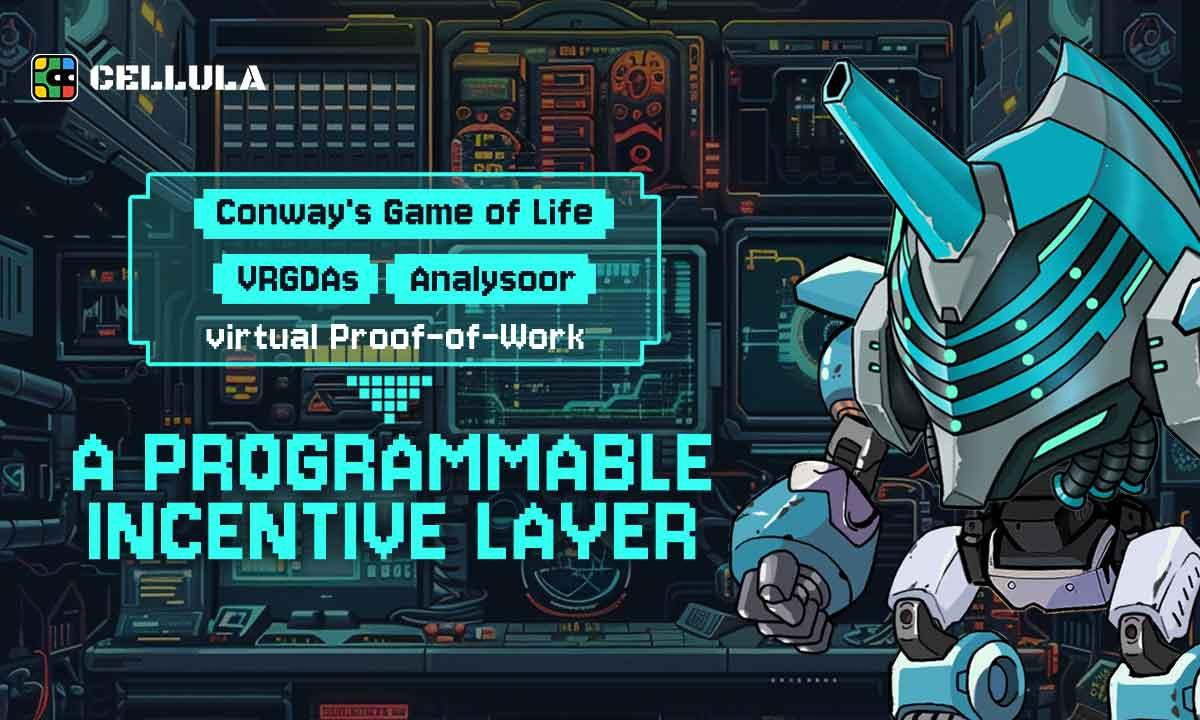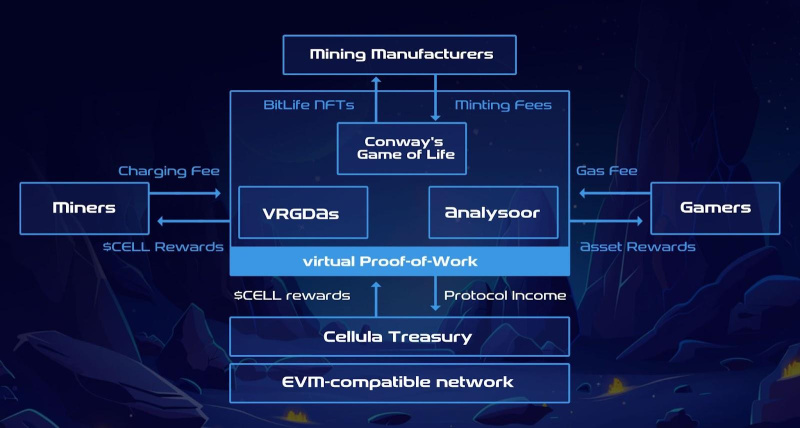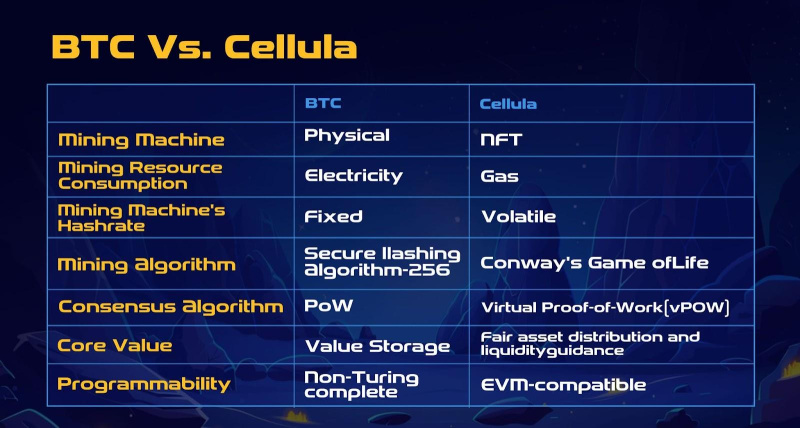
Cellula Introduces Programmable Incentive Layer to Gamify Asset Issuance
hongkong, china, August 15th, 2024, Chainwire
In a groundbreaking move to address the challenges of equitable asset distribution and decentralization in the cryptocurrency space, Cellula has unveiled its innovative programmable incentive layer built on the Ethereum Virtual Machine (EVM) ecosystem. At the core of Cellula’s innovation is its virtual Proof-of-Work (vPOW) consensus mechanism, which combines principles from Conway’s Game of Life, Variable Rate GDAs Algorithm, and Game Theory to revolutionize the way digital assets are distributed and liquidity is allocated.
The crypto industry has long grappled with the issue of “whales” – a small group of individuals or entities that accumulate a disproportionate share of assets, leading to market manipulation, reduced decentralization, and limited participation opportunities for smaller investors. Additionally, traditional asset distribution methods, such as pre-mining, have further concentrated ownership, undermining the fairness and accessibility of these ecosystems.
“We have grown weary of the war between the witches and the hunters,” said the Cellula team. “Cellula seeks to address these dual challenges by reintroducing the BTC Proof-of-Work mechanism to EVM-compatible networks, pioneering asset distribution and liquidity allocation guidance through virtual Proof of Work (vPOW).”
Cellula’s vPOW mechanism empowers “BitLife” entities with unique hashrates, enabling them to engage in a gamified mining process that generates dynamic incentives. This revolutionary approach is powered by Cellula’s trifecta of innovative algorithms: Conway’s Game of Life for mining, Variable Rate GDAs (VRGDA) for pricing, and the Analysoor protocol for fair distribution and liquidity guidance.
Mining Algorithm – Conway’s Game of Life – Genetic Code Of On-Chain Digital Life: Conway’s Game of Life underpins Cellula’s on-chain entities, “BitLife,” which evolve dynamically, reflecting natural life cycles and enabling complex AI development within the blockchain. This gamified mining process encourages participants to develop more optimal strategies to potentially earn additional block rewards, fostering a competitive environment that ensures only committed resources are rewarded.
Pricing Algorithm – Variable Rate GDAs – A Dynamic Pricing for NFT Distributions: VRGDA adjusts asset prices based on demand, increasing when sales are high and decreasing when they lag, ensuring balanced distribution even in illiquid markets. This dynamic pricing model helps to prevent the concentration of assets in the hands of a few, promoting wider participation and a more equitable distribution.
Consensus Algorithm – Analysoor – Fair Asset Distribution And Liquidity Guidance: Analysoor is a Fair Launch protocol on Solana that uses block hashes for a random number generator to distribute NFTs and tokens fairly. Unlike traditional models, it avoids high GAS fees and bidding wars by offering fixed-cost “block lottery tickets” for participation. Each ticket’s block hash determines winners transparently, preventing bots and ensuring equal opportunities for all users, regardless of financial power. Transaction fees from the lottery are used to inject liquidity into new assets, promoting ecosystem growth. Integrating Analysoor with vPOW also provides fairer asset distribution and better liquidity allocation guidance.

“Cellula’s vPOW mechanism is truly a game-changer,” explained the Cellula team. “By seamlessly integrating these cutting-edge technologies, we have created a programmable incentive layer that is poised to reshape the future of decentralized finance and on-chain participation.”
One of the key features that sets Cellula apart is its permissionless nature. The vPOW mechanism allows any participant (miner) in the network to potentially earn rewards by minting and charging Bitlife, without the need for a central authority to allocate resources. This approach ensures a more open and transparent asset distribution process, fostering greater decentralization and accessibility.
Transparency is also a cornerstone of Cellula’s design. All algorithms and asset distribution processes are recorded on-chain, enabling anyone the ability to verify and review the process, thereby increasing the system’s transparency and credibility.
“Cellula is poised to usher in a new era of on-chain participation and value creation,” said the Cellula team. “By seamlessly integrating these innovative technologies, we are redefining the way assets are distributed and liquidity is allocated, paving the way for a more equitable and decentralized crypto ecosystem.”
With its comprehensive approach to addressing the challenges of asset distribution and decentralization, Cellula is set to revolutionize the way the crypto industry approaches these critical issues. As the project continues to evolve and expand its reach, it remains a beacon of hope for a future where fair and transparent asset distribution is the norm, not the exception.
About Cellula
Cellula is a pioneering programmable incentive layer that revolutionizes asset issuance on the Ethereum Virtual Machine (EVM). Utilizing a novel virtual Proof-of-Work (vPOW) consensus mechanism, Cellula combines the principles of Conway’s Game of Life, Variable Rate GDAs Algorithm, and Game Theory to create evolutionary, intelligent, and programmable on-chain digital entities known as BitLifes.
For more information on Cellula and its groundbreaking programmable incentive layer, users can visit the project’s Gitbook at https://cellulalifegame.gitbook.io/cellula.

